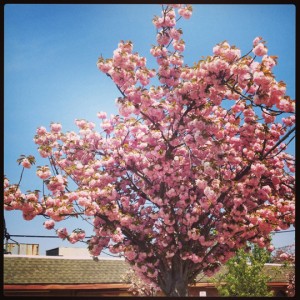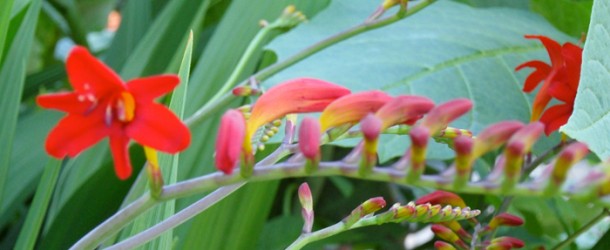 It’s that time of year again. The air is warming, flowers are beginning to bloom, and everything is turning green. And also my car is coated with a thick, yellowy dust, my eyes are watering, and I have a hint of a tickle at the back of my nose. Yep, I’m talking about Pollen Season.
It’s that time of year again. The air is warming, flowers are beginning to bloom, and everything is turning green. And also my car is coated with a thick, yellowy dust, my eyes are watering, and I have a hint of a tickle at the back of my nose. Yep, I’m talking about Pollen Season.
My allergies are much, much better than they used to be. As a child I had to take allergy medicine every day (back when Benadryl and Actifed with prescription meds), and I would have to double up if I was visiting a friend with a pet. Springtime was the worst season of the year, and I would often sequester myself to my bedroom with stacks of books and drawing supplies. Blooming flowers and sprouting trees were always my enemies. Thankfully things aren’t nearly as bad as they used to be, and I can survive spring relatively unharmed.
Here are some of tips on how to deal with seasonal allergies without reaching for over the counter allergy medication and dealing with their side effects. (Most of them give me great anxiety and keep me up at night!)
- Ditch dairy. Dairy products such as milk and cheese cause excess mucus in the body. Cow’s milk is also a common allergen, so if your body is already overloaded with something that irritates it, pollen is going to make things worse.
- Eat a clean, whole foods diet. Along the same lines as dealing with dairy, if your body is full of processed foods and chemicals, it’s going to be overtaxed trying to figure out what to do with all of that junk. Adding unavoidable allergens to the mix will just overload your system.
- Keep the windows closed. After a long winter, you probably want to throw open all of the windows when the weather is warm and beautiful, but pollen is sneaky and you don’t want it entering your house through your windows. Keep it outside where it belongs. You especially want to keep the windows closed when your lawn is being mowed. (Assuming you have a lawn, of course.)
- Supplement. Natural supplements such as stinging nettle, quercetin, zinc and buffered vitamin C can help reduce inflammation, boost immunity and minimize allergic reactions.
- Wash your hair at night. Pollen can get trapped in your hair when you go outside, especially if you use styling products. You don’t want to invite pollen into your bed with you, so wash it out before you hit the hay.
- Keep your nose clean. Use a neti pot to rinse our your nose. If you’re adverse to neti pots, try over the counter saline sprays.
- Spice things up. Spicy foods such as garlic and cayenne pepper have anti-inflammatory properties and can help decrease congestion. Onions and garlic have healing properties as well.
- Raw organic apple cider vinegar. Apple cider vinegar helps reduce inflammation and blocks the body’s reaction to allergens. Drink a spoonful in a glass of water in the morning before going outside.
- Essential oils. I’m a big fan of Young Living oils, and there are many that can help with allergies. Lemongrass, lavender, peppermint, eucalyptus and roman chamomile are all wonderful at relieving allergy symptoms. You can add a few drops to bath water, diffuse in a cold air diffuser, or even add to a carrier oil such as almond or coconut and rub onto your feet, neck and chest.
- Stay inside. It may seem antisocial or even torturous after a long, cold winter, but it’s best to stay inside when the pollen count is really high. Check the pollen count online (I get pollen count emails from Pollen.com) and if it seems bad, stay home and catch up on that book you wanted to read or that DIY you started months ago.
